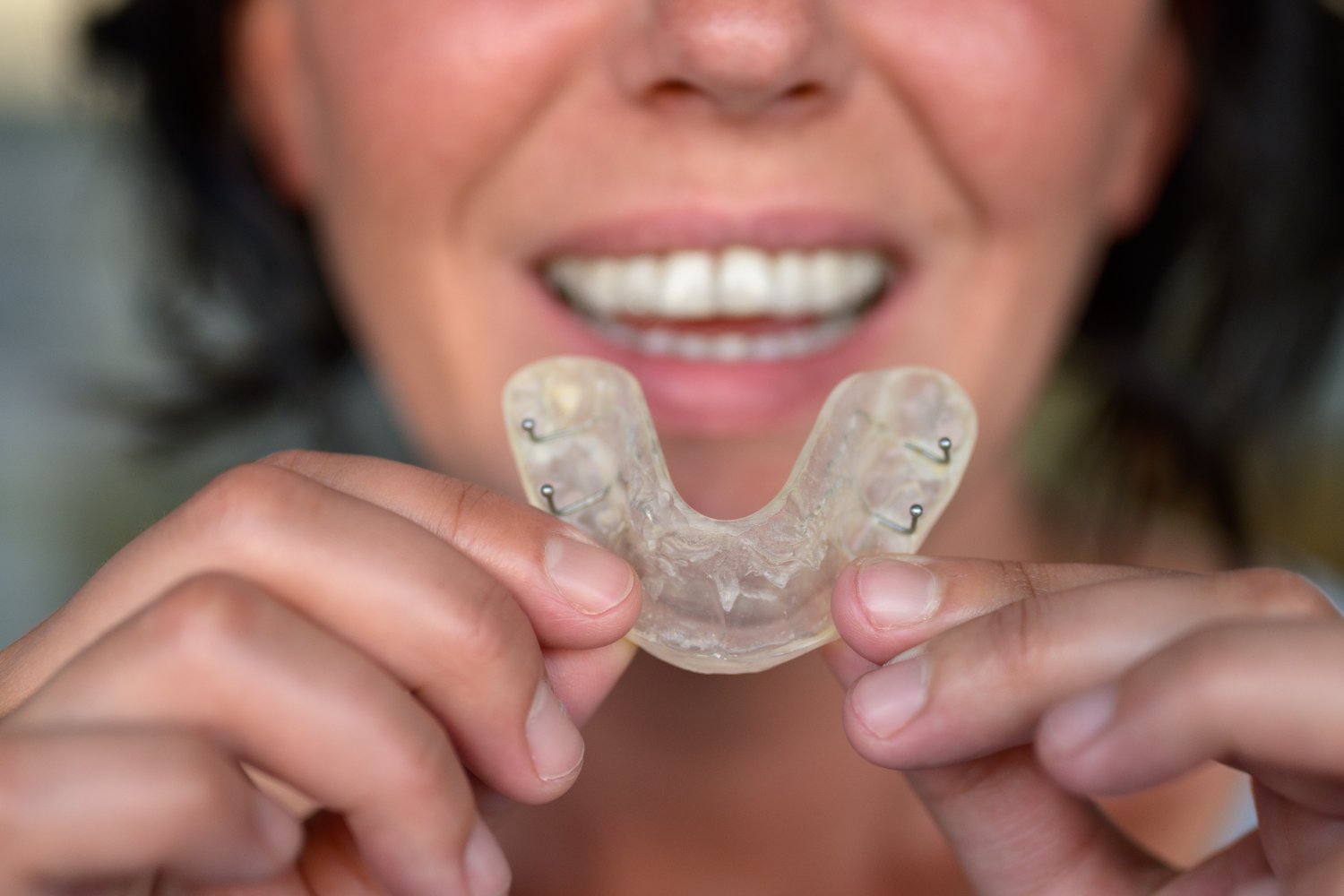Bruxism is the medical term for teeth grinding, and it is a lot more serious than most people realize. Bruxism is the act of smashing, grinding or clenching the teeth against each other. People grind their teeth both when they are awake (Awake Bruxism) and when asleep (Sleep Bruxism), and are often unaware of the problem. Teeth grinding can cause damage to your teeth, jaw disorders and even headaches, so it’s essential to seek medical advice if you suspect that you suffer from teeth grinding.
What Causes Teeth Grinding?
Bruxism is usually caused by stress. Dr. Matthew Messina, interim director of the OSU College of Dentistry and ADA spokesperson, stated that “using muscles to push teeth together and grinding around is one of the body’s ways of reducing the energy made from the stress.” Recently, medical professionals have noted a definite increase in the number of patients seeking care for symptoms of Bruxism. Many believe that stress and anxiety from dealing with the implications of the COVID-19 pandemic are behind this increase. Emotions such as fear, frustration, anger and anxiety are usually what causes people to grind their teeth. Unfortunately, because it is an unconscious behavior, you often don’t realize you’re suffering from teeth grinding until you begin to notice symptoms.
Symptoms of Teeth Grinding
It’s ironic that while teeth grinding is a reflex the body uses to release stress, Bruxism causes additional stress on your teeth and jaw. If you suffer from teeth grinding, you may notice some of the following:
- Pain in your teeth or jaw muscles
- Your teeth may appear flattened
- Pain in your face or neck
- Damage to the inside of your cheeks
- Dull headaches around your temples
Grinding of the teeth often happens at night, while you are asleep. This is known as Sleep Bruxism. Sometimes the sound of your teeth grinding together is so loud it will keep your partner awake. Sleep Bruxism is especially damaging to your teeth because when you are asleep, you ignore how hard you are clenching or grinding. That can lead to more than 250 pounds of force being exerted on your teeth. Have you ever woken up and felt a sharp pain in your temporomandibular joint (TMJ)? Or tried to open your mouth only to find that your jaw had locked up? These are all symptoms that you are grinding your teeth regularly.
Why You Should Seek Medical Advice for Teeth Grinding
Bruxism is very harmful to your teeth. The constant pressure from unconsciously grinding your teeth together all the time can cause your teeth to chip or break. Grinding can also cause damage to any restorations or dental work such as crowns and bridges. It can also cause or worsen disorders of the Temporomandibular joint (TMJ) in your jaw, causing the jaw to click or hurt when chewing or biting down. If you suspect you are suffering from teeth grinding, make an appointment with your dentist so they can provide medical advice, diagnosis or treatment. Diagnosis of Bruxism is easy for a dental professional. They will check for cracks in your teeth, signs of wear and tear, or joint pain and tenderness around your jaw. If they find evidence of grinding teeth, they may recommend you get fitted for a mouthguard.
How Can I Stop Grinding My Teeth?
A mouthguard will protect your teeth from grinding, but it is not a cure for Bruxism. The best way to stop teeth grinding is to address the stress that causes people to grind their teeth in the first place. Employ stress-reducing techniques wherever you can. Make sure you are getting adequate sleep and exercise. Practice mindfulness and try and pay attention to whether you are grinding your teeth during the day. Ask your dentist to provide any medical advice they may have on ways to stop teeth grinding. If you and your dentist work together, you can avoid the damage that may come from daily teeth grinding.
